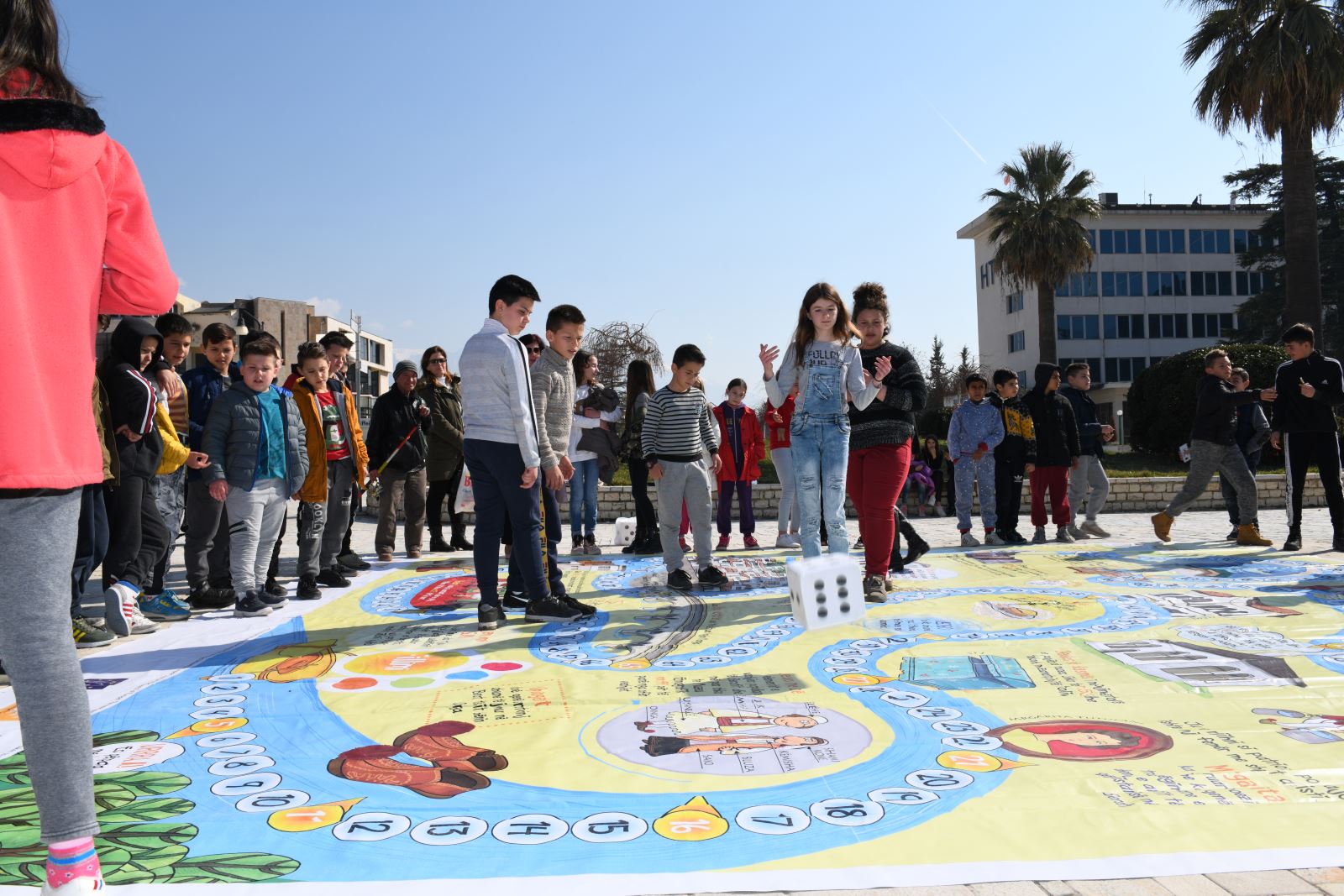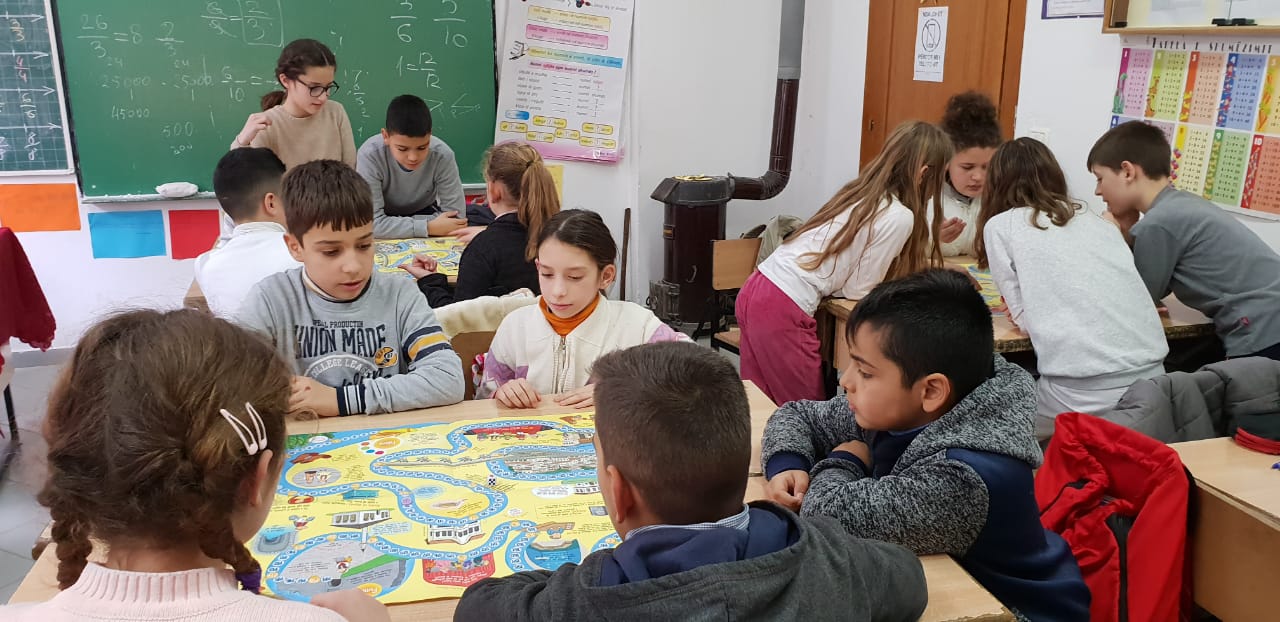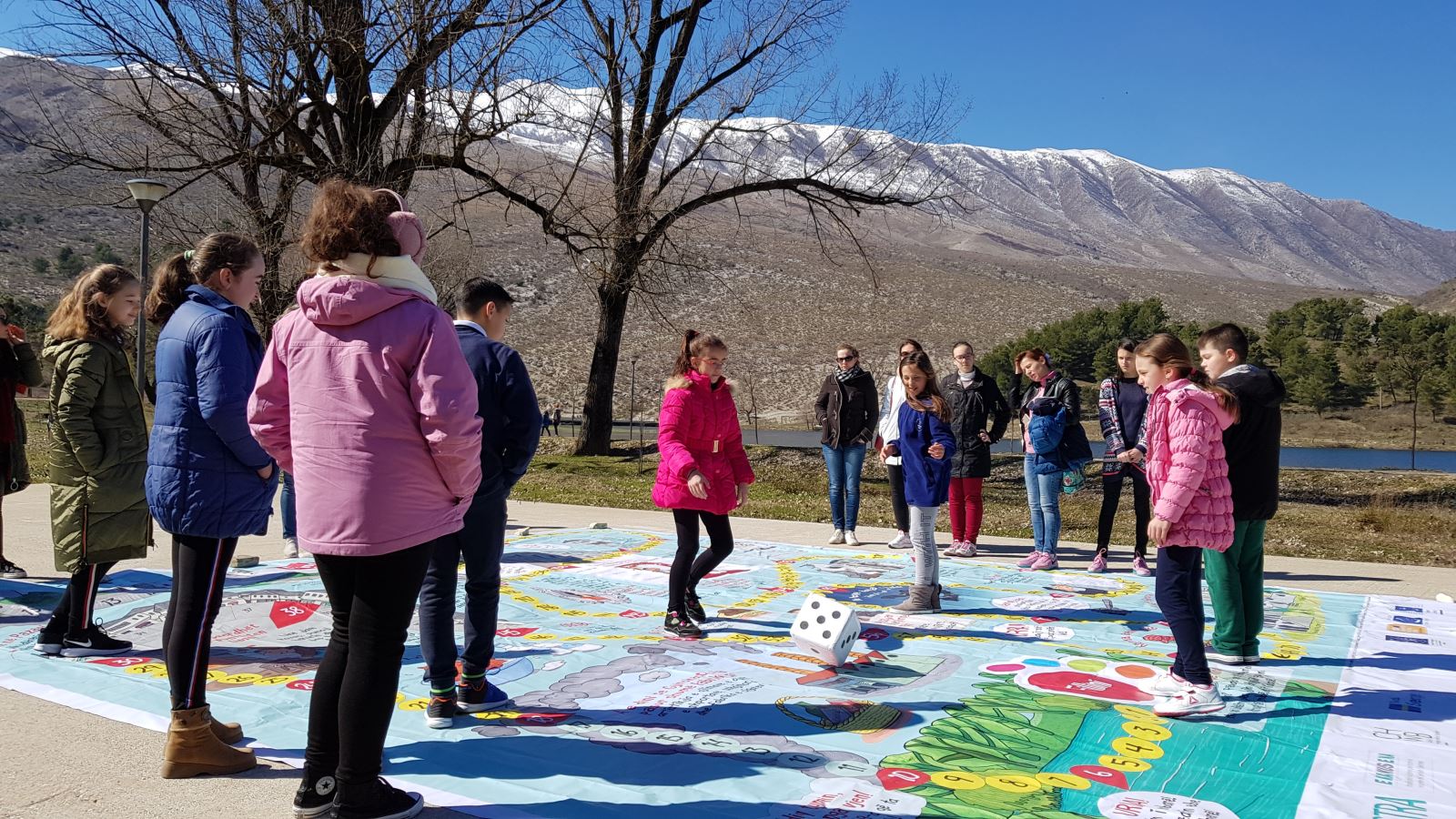European Heritage Stories Interview: Don’t Get Mad
European Heritage Stories Interview: Don’t Get Mad
As European Heritage Days celebrates and explores the heritage of Arts and Entertainment as the theme of 2019’s edition, we are taking the opportunity to look back at one of ten projects supported by last year’s Call for European Heritage Stories. Don’t Get Mad, led by Cultural Heritage without Border Albania, celebrates and explores a unique facet of traditional Albanian entertainment.
The Call, intended to promote the work and people behind the European Heritage Days, was introduced as one of the main activities of the European Year of Cultural Heritage 2018. A number of stories were selected by the European panel to be developed into projects, to build on the exciting work being done in European Heritage Days communities.
Don’t Get Mad (Mos u Nxeh), one of these projects, is an Albanian popular pastime activity, passed on from one generation to another, which was presented as one of the national events at European Heritage Days. The game inspired a project developed by Cultural Heritage without Borders Albania. The storyteller, Mirian Bllaci, as project coordinator and representative of CHwB, has shared his insights into managing the project and here tells us more about the inspiration, the origins, the impact, and the European dimension of the story which celebrates Albanian heritage in an inspiring and entertaining way.
 Which aspect of Albanian heritage inspired your story?
Which aspect of Albanian heritage inspired your story?
The Don’t Get Mad board game is inspired by the traditional game of Mos u Nxeh (“Don’t Get Mad”). During Albania’s communist period (1944-1991), Don’t Get Mad was a popular pastime for many families, who also had to endure many cultural, political and social restrictions. This game was, at that time, a way to acknowledge and pass on, from one generation to the next, societal traditions and historical values. And it didn’t tell only one story. It interwove many stories about Albania and its heritage. In the original game, players took turns rolling the dice with the ultimate goal of reaching the finish line first. However, to achieve this, players first had to make it through the game’s numerous traps and penalties. As victory was just as important as the path that lead to it, players had to do their best to stay focused and “keep their cool” (hence the ‘don’t get mad’ popular title). CHwB Albania’s revisited Don’t Get Mad not only to “dust off” this traditional game, but in line with its original philoshophy, to re-purpose it to inspire and develop people-centered ways of educating about cultural heritage, its meanings and uses in society today.
The EHS initiative aimed to identify good work being done in EHDs communities and provide them with the support to develop their work further. How has the community been involved in your project? What opportunities has it given to people?
From December 2018 to March 2019, 3 “Don’t Get Mad” board games were created and put to use for three of the most important historical Albanian cities, Berat and Gjirokastra (World Heritage Sites), and Korça. These games were used in 10 “Heritage Ateliers” with children in classrooms and 3 large size versions of the game were used in three open-air public activities organized in three public squares in these cities. These activities gathered more than 330 pupils between 6-11 years of age, teachers, heritage professionals and parents around this concept that is entertaining and that encourages individuals to think about cultural heritage as a resource and of ways to preserve it. Thanks to the support of the Council of Europe and the European Commission through this grant from European Heritage Days, CHwB Albania has also expanded the network of partnering schools and institutions that advocate for the inclusion in the national curricula of qualitative heritage education tools. Namely, 10 different schools, 3 Regional Agencies for Education, 3 municipalities, 1 National Museum and 1 Association of Local Businesses have been actively participating in the design and delivery of the Don’t Get Mad Experience. Building on this momentum, we are excited to continue working in this direction.
What did you recognise as some of the most significant challenges you came across throughout the project? What were some of the new opportunities that originated from it? Can you share some insights into your experience of managing the project?
In each of the activities organized we have seen a variety of emotional reactions from children. Many of them have even asked us to come back and offer more board games for their brothers and sisters! This makes us happy, but entails us with more responsibilities to increase the impact of our work through similar educational activities by involving more children, parents and teachers in more cities. Given also the lack of integration of similar activities into the national education curricula it was challenging for CHwB Albania to set up a pre-established calendar aimed at working directly and consistently with the same teachers or specialists on heritage interpretation and education. There is also a challenge of adapting the project for delivery in both urban and rural communities that needs to be alleviated through similar activities such as the heritage ateliers. The lack of financial resources combined with a lack of excursion-like type of activities in the curriculum excludes especially the pupils of rural schools, who are unable to visit and get to know in an experiential way the main historic/cultural landmarks in their own regions.
What are some of the most significant practical benefits the project has generated for the community in terms of raising awareness about the heritage and shared values? What feedback has the project received from teachers involved in it? Has the project inspired any additional ideas for serving the community?

The Don’t Get Mad board game experience, supported by European Heritage Days as part of the European Heritage Stories initiative, constituted a great opportunity to test new ways of reaching out and encouraging individuals, from the earliest age, to acknowledge, appreciate and care for values such as diversity, peaceful coexistence and democracy. The feedback from the teachers indicated that these type of activities fulfill their needs and demands for alternative activities and provide them with concrete pedagogical support and related opportunities for practical activities. The added value of this approach is that it unites different stakeholders, such as schools, and cultural centers for children, municipalities and other organisations in a sustained and coordinated effort to champion heritage and provide an opportunity for people to explore it from a young age.
The European Dimension of the initiative mandates the projects to be oriented towards democratic and peaceful promotion of diversity through sustainable development. What is the European legacy of your project?
The opportunities provided by heritage are increasingly being recognized by the European Union; according to the 2018 Eurobarometer for culture, 90% of European citizens agree that Europe's cultural heritage should be taught in schools, as it tells us about our history and culture. Initiatives such as Don’t Get Mad, developed within local communities, contribute to creating best practice models that can be replicated and adapted in a variety of local contexts across Europe. Projects such as ours offer an opportunity for professionals, organizations and institutions that operate in difficult contexts to develop heritage communities at a grassroots level. The Don’t Get Mad project develops informal education tools and informal learning that can address the needs of today’s society, and it is hoped that this will contribute to positive changes in the education system and curriculum.
